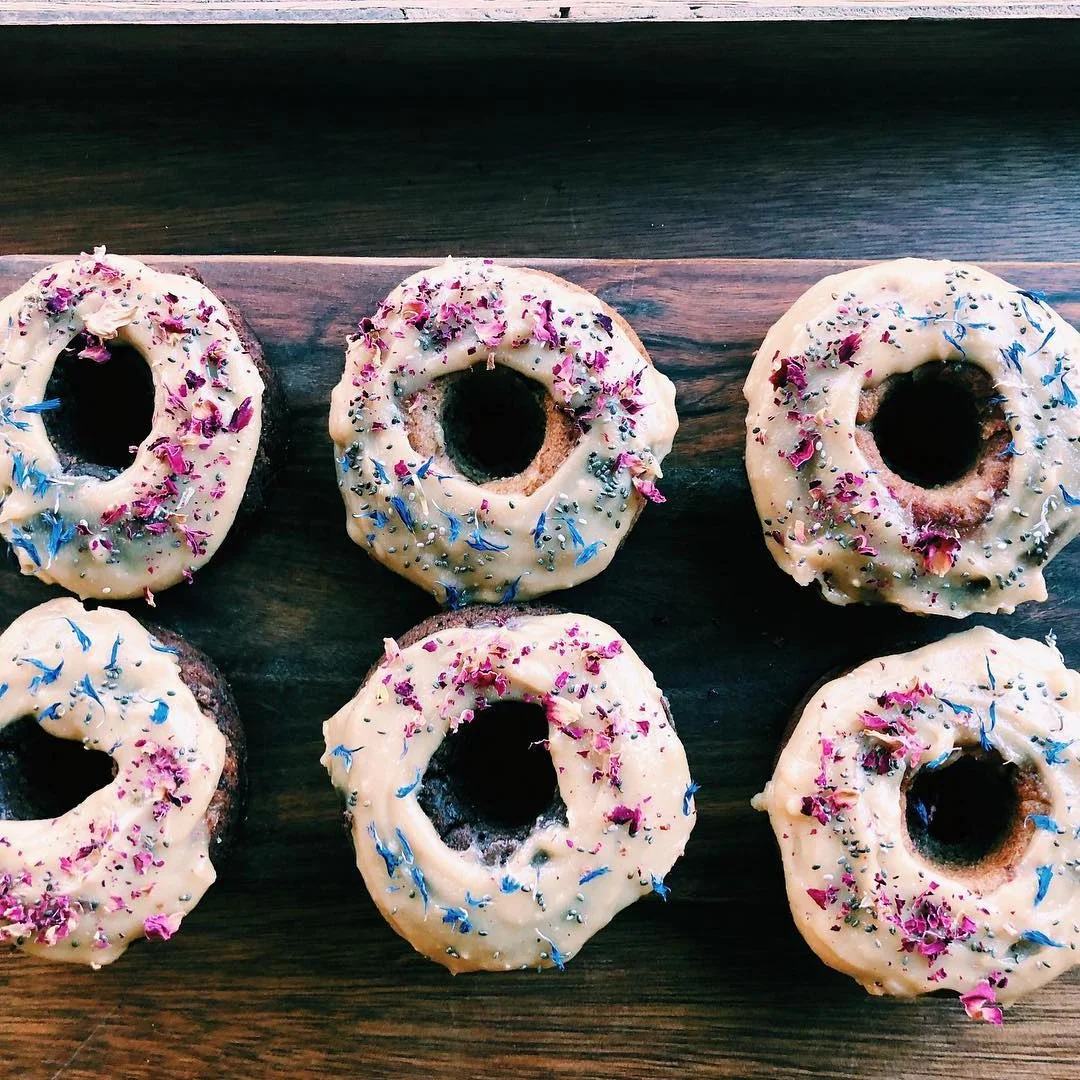Intuitive eating is a non-diet approach that helps us tune back into the signals of our body, break free from dieting and food rules, and heals our relationship with food and our body.
We are all born as intuitive eaters. As babies and small children, we ate when we were hungry, and would stop once we were full. It is only as we grow up we learn mixed messages about food. We learn that certain foods are good or bad, we learn that foods are used for reward or punishment and we learn about diets, calories and macros. It is these mixed messages that enable us to lose the ability to eat in tune with what our body wants and needs, as we become reliant on external messages, rather than the internal signals from our body.
Becoming an intuitive eater is about re-learning to eat the way that we were born with. It is about getting in touch with our physical and emotional needs, hunger/fullness signals and eating foods for pleasure, satisfaction and nourishment.
Where did intuitive eating come from?
Two dieticians, Evelyn Tribole and Elyse Resch, developed the intuitive eating framework back in the ’90s. While in clinical practice, the pair noticed that their clients weren’t able to stick to their meal plans. At the time, they didn’t believe they were prescribing diets, as the meal plans were flexible and based on their clients’ preferences, but at the end of the day, the main goal was still intentional weight loss. They saw their clients lose weight at first, but after some time, they would return to see their dietitians, as they just couldn’t stick to their meal plans – and had often also gained the weight back. What is interesting, though, is that all of their clients blamed themselves for the return of the weight they’d lost or their inability to stick to the diets. They all thought they had failed (just as we so often believe, too).
But Elise and Evelyn realised that it wasn’t a failing of their clients at all; it was their approach that wasn’t working. They dug deep into the research and came across a non-diet approach, which led to them to build the intuitive eating framework.
Elise and Evelyn’s intuitive eating guidelines consist of 10 principles
Principle 1. Reject the Diet Mentality
Principle 2. Honour Your Hunger
Principle 3. Make Peace with Food
Principle 4. Challenge the Food Police
Principle 5. Discover the Satisfaction Factor
Principle 6. Feel Your Fullness
Principle 7. Cope with Your Emotions with Kindness
Principle 8. Respect Your Body
Principle 9. Movement – Feel the Difference
Principle 10. Honour Your Health – Gentle Nutrition
They released the first book on intuitive eating in 1995 (it’s now it is in its fourth edition, released in 2020), which teaches readers how to implement these principles into their life.
What can intuitive eating do for you?
· It can help you free yourself from dieting, food fears, food guilt, binge eating and emotional eating so that you can finally end your constant struggle with food.
· It can teach you how to respond to your body’s hunger and fullness cues, as well as how to tune into any emotional needs, so that you no longer obsess over food and can live and enjoy life.
· It empowers you to change the way you think about food and how to eat for nourishment, pleasure and satisfaction, rather than eating according to food rules, calories or macros. This helps your body tell you exactly which foods and how much food you need to stay nourished.
· It teaches you how to let go of black and white thinking, make peace with food and have a compassionate approach to eating so that you don’t go into full “screw it” mode and eat everything in sight like you do when you are on a diet.
Ultimately, intuitive eating is a journey of discovery that will help you reconnect with yourself so that you can take power back over your body and food choices.
Benefits of intuitive eating
Intuitive eating has been linked to not only less dieting and disordered eating behaviours, but also better body image and emotional functioning [1] – and there’s a lot of research to back this up. In fact, to date, there have been more than 125 studies on intuitive eating and its benefits [2].
A 2006 study of 340 female university students also showed that eating for physical (rather than emotional) reasons, and relying on hunger and fullness cues, helped improve participants’ psychological wellbeing – from improved resilience and optimism to having a more positive view of themselves and boosting their ability to deal effectively with stressful situations[3].
Intuitive eaters also have better health outcomes than dieters. Those who eat intuitively rather than following diets or food rules, and who eat a variety of foods, not only have a healthier relationship with food, higher self-esteem and greater life satisfaction, but also show decreased cholesterol and lower triglyceride levels [4]. They also take pleasure in food and have better all-round nutrient intake, as they tend to consume a greater variety of foods than dieters (who often stick to the same foods day in and day out)[5].
So you can see how intuitive eating has the potential to not only heal your relationship with food, but also improve your quality of life overall.
It can be truly life changing.
[1] Bruce and Ricciardelli, “A Systematic Review of the Psychosocial Correlates of Intuitive Eating among Adult Women.”
[2] Tribole, Tribole, E. and E. Resch. 2020 Intuitive Eating: A Revolutionary Anti-Diet Approach, 4th Edition. St. Martin’s Press, NY:NY.
[3] Tylka and Wilcox, “Are Intuitive Eating and Eating Disorder Symptomatology Opposite Poles of the Same Construct?”
[4] Tribole, Tribole, E. and E. Resch. 2020 Intuitive Eating: A Revolutionary Anti-Diet Approach, 4th Edition. St. Martin’s Press, NY:NY.
[5] Tribole.



